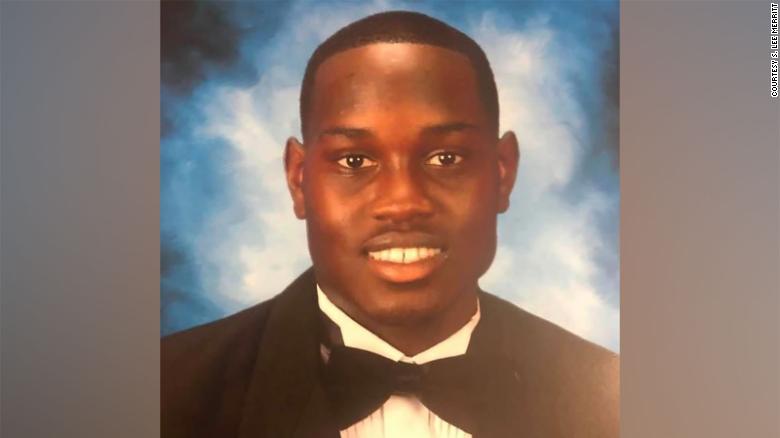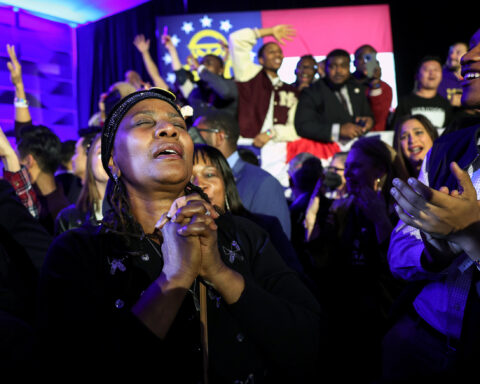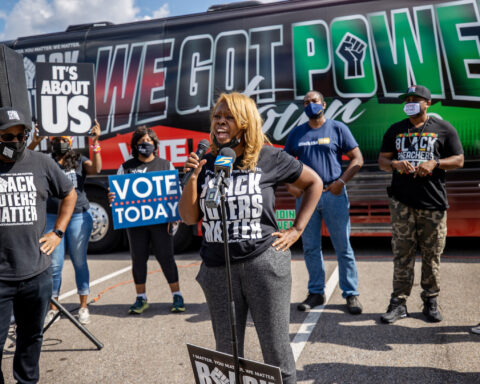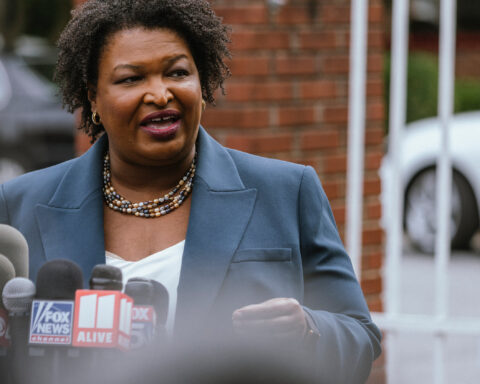Three White men accused of chasing down and killing Ahmaud Arbery, a 25-year-old Black man out for a jog, are set to stand trial for murder in Georgia this week in a case thick with issues of racism, self-defense and cellphone video.
Gregory McMichael, his son Travis McMichael and their neighbor William “Roddie” Bryan Jr. are charged with malice and felony murder and have pleaded not guilty. They also face charges of aggravated assault, false imprisonment and criminal attempt to commit false imprisonment.
Jury selection in their state trial begins Monday.
Arbery was fatally shot February 23, 2020, while out jogging in Brunswick, Georgia, in an incident partly captured on video. The McMichaels said they were conducting a citizen’s arrest on Arbery, who they suspected of burglary, and that Travis McMichael shot him with a shotgun in self-defense. Bryan, who recorded the video, allegedly hit Arbery with his truck after he joined the McMichaels in chasing Arbery.
After the shooting, the three men were allowed to leave the scene and weren’t arrested until after video of the incident was made public in early May.
The video and the delay in making the arrests, along with the killings of George Floyd and Breonna Taylor last year, helped spark nationwide Black Lives Matter protests that challenged how the legal system treats Black people.
The McMichaels and Bryan have also been indicted on federal hate crime and attempted kidnapping charges. They have pleaded not guilty to those charges as well.
With its focus on video evidence, the case bears some resemblance to the murder trial of ex-Minneapolis Police officer Derek Chauvin, who was convicted of murder in Floyd’s death. In addition, the issues of vigilantism and self-defense offer similarities to the trial of George Zimmerman, the neighborhood watchman who was acquitted in 2013 of killing 17-year-old Trayvon Martin.
How we got here
Arbery was shot dead in a confrontation with Travis and Gregory McMichael in the neighborhood of Satilla Shores, outside the city of Brunswick in Georgia’s lowcountry.
Arbery was on a jog — something he was known to do, according to those who knew him — when the McMichaels grabbed their guns and pursued Arbery. Gregory McMichael, a former police officer and investigator in the local District Attorney’s Office, later told police Arbery and his son had struggled over his son’s shotgun, and that Travis McMichael shot Arbery after the latter attacked him, according to the initial police report.
Bryan had also joined the pursuit and recorded the shooting on his cellphone.
Gregory McMichael told police he and his son had pursued Arbery because they suspected he was responsible for a string of recent purported burglaries in the neighborhood. A Glynn County Police spokesperson later said there had only been one burglary — a gun stolen from an unlocked vehicle in front of the McMichaels’ home — reported in more than seven weeks prior to the shooting.
Additionally, McMichael said he saw Arbery inside a home under construction. Arbery was seen entering the home in surveillance video at the site, but the owner of the home told CNN he did not see Arbery commit any crime other than “trespassing” the day of the shooting.
For months, the case lay dormant, and two prosecutors recused themselves from the case due to conflicts of interest.
But in May, video taken by Bryan of the fatal interaction was made public, and the McMichaels were arrested days later. The three were all jointly indicted by a grand jury in June 2020.
At a preliminary hearing last June, Georgia Bureau of Investigation Assistant Special Agent in Charge Richard Dial testified that Bryan told investigators he heard Travis McMichael use a racial epithet after shooting Arbery. McMichael had also used racial slurs numerous times on social media and on messaging services, Dial said.
Attorneys for the three defendants have said they acted in self-defense. But Dial testified the opposite was true.
“I believe Mr. Arbery was being pursued, and he ran till he couldn’t run anymore, and it was turn his back to a man with a shotgun or fight with his bare hands against the man with the shotgun. He chose to fight,” he said. “I believe Mr. Arbery’s decision was to just try to get away, and when he felt like he could not escape he chose to fight.”
The district attorney at the time, Jackie Johnson, was voted out of office amid the backlash. In September, she was indicted on charges of violating her oath as a public officer and obstructing a police officer for allegedly interfering with the arrest of Travis McMichael. Johnson has denied wrongdoing.







